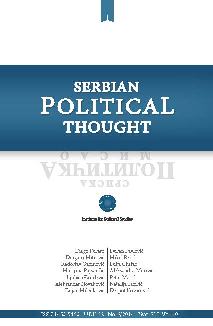The Budget Dilemma and Public Spending: Evidence from Ten Postcommunist Countries
The Budget Dilemma and Public Spending: Evidence from Ten Postcommunist Countries
Author(s): Dušan Pavlović, Miloš BešićSubject(s): Politics / Political Sciences
Published by: Институт за политичке студије
Keywords: Budget Dilemma; fiscal policy; public spending; minimal winning coalition; oversized coalition
Summary/Abstract: The paper examines whether the number of parties in the cabinet and the type of coalition affect the level of public spending. It offers a statistical analysis of two hypotheses: (1) the larger the number of parties in the cabinet, the higher the public spending; (2) minority and minimal winning coalitions tend to spend more, whereas large majority coalitions tend to spend less. The analysis draws on statistical data from ten East-Central European countries, with the data confirming the first and rejecting the second hypothesis. The paper offers two novelties. First, it defines a new concept (the Budget Dilemma) to test the relationship between the number of parties and the level of public spending. Second, it uses data about the countries that has appeared less frequently in similar types of research and studies, providing new observations for testing the relationship between the number of the parties in a cabinet and the level of public spending.
Journal: Serbian Political Thought
- Issue Year: 10/2014
- Issue No: 2
- Page Range: 133-157
- Page Count: 25
- Language: English

